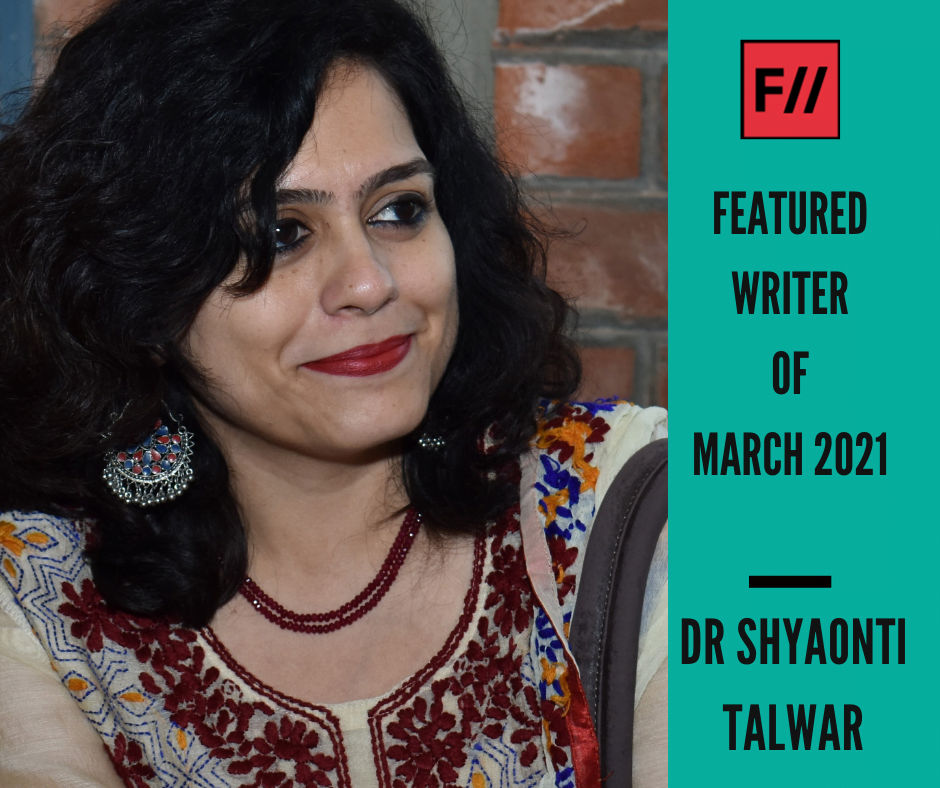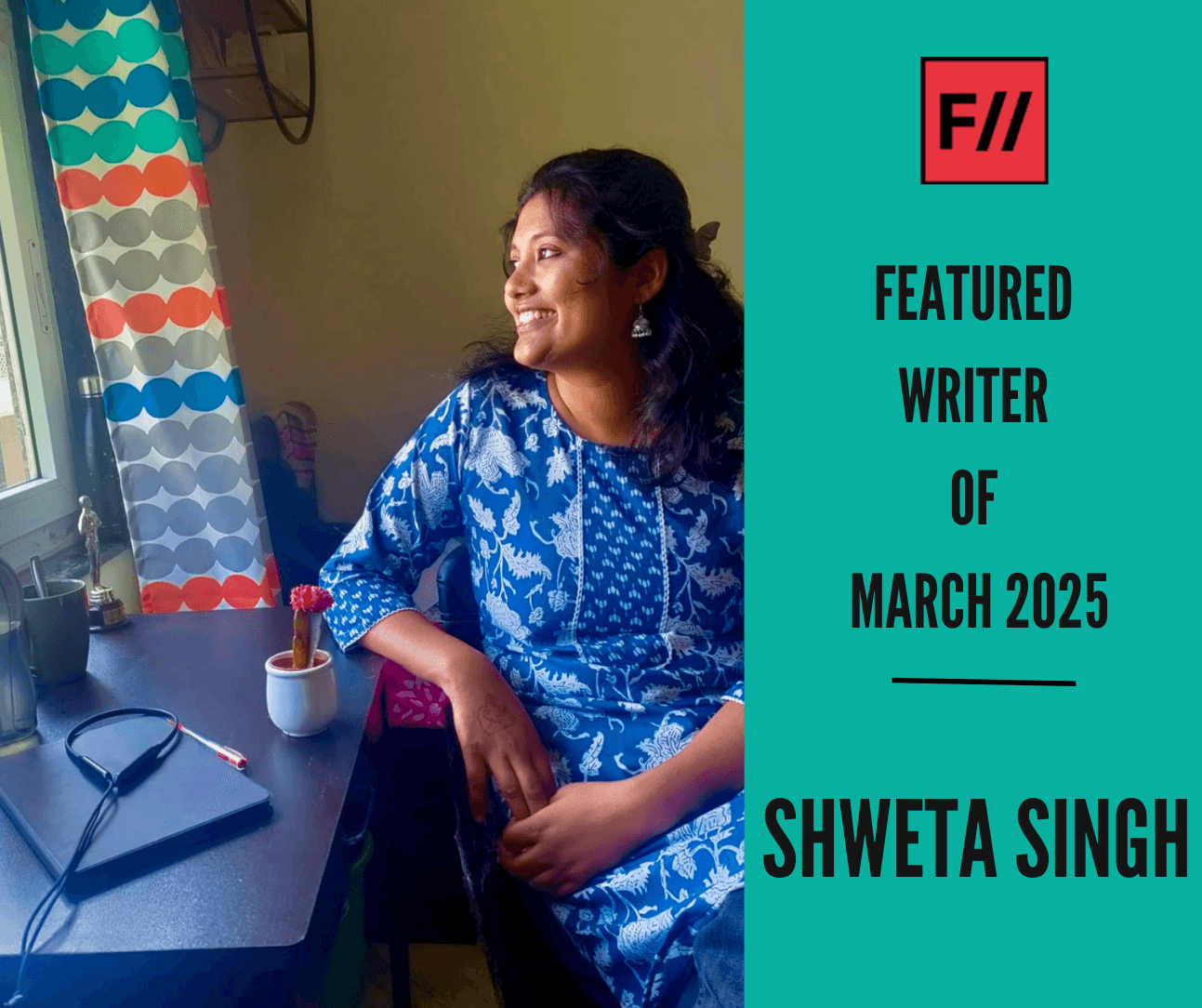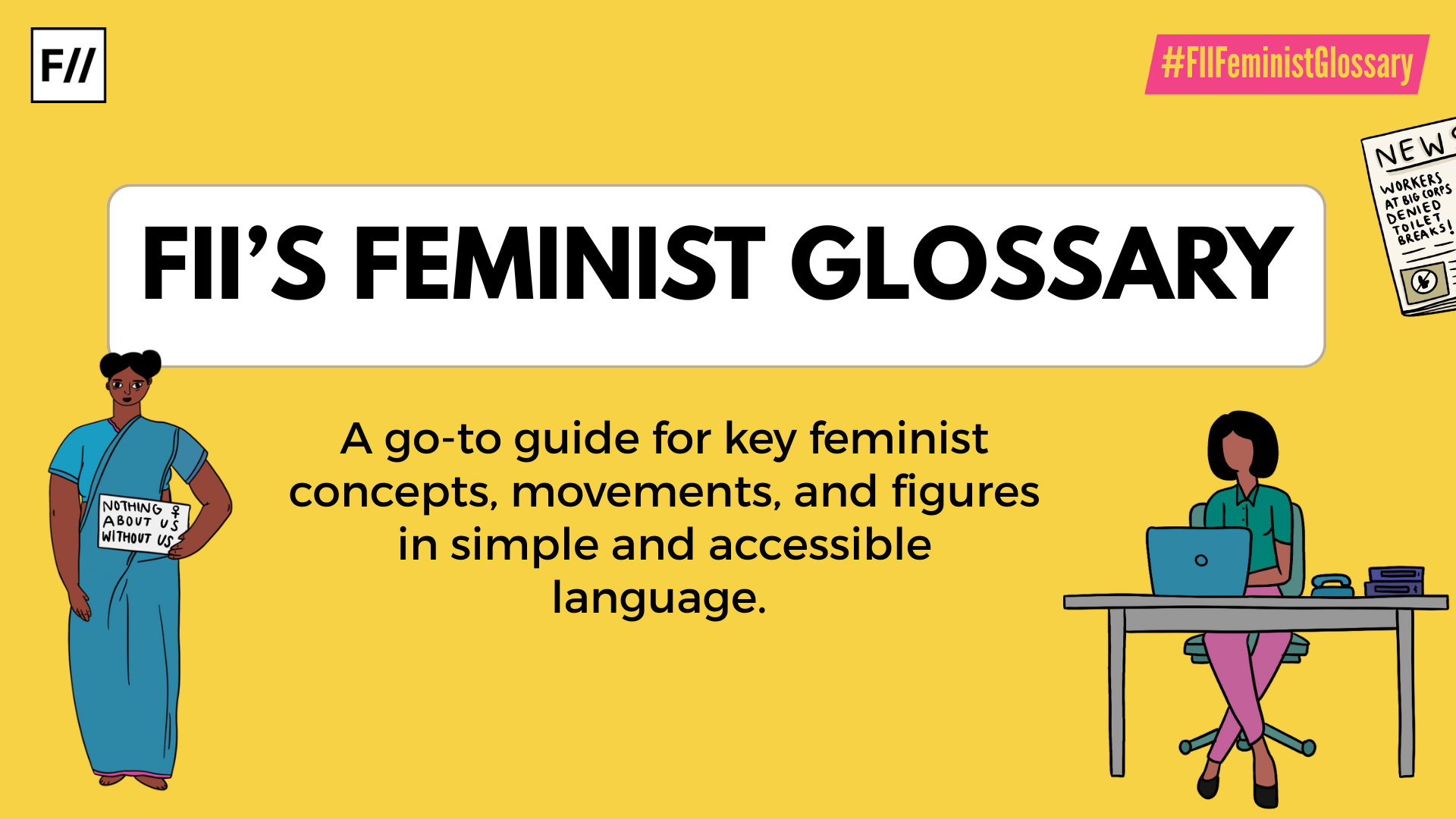We have been featuring the best writers from our writers’ community for their committed contribution to FII, making it what it is today. FII would not exist if not for the passionate and loyal feminist writers’ community that we have steadily been building over the last three years. This March, we feature Dr Shyaonti Talwar.
An academician, researcher and a writer with interest in popular culture, social inequality, literature, mythology and gender, Dr Shyaonti started writing for Feminism In India in December 2020. From film reviews, socio-political commentary, parenting to a critical analysis of mythologies, Dr Shyaonti, who is also a poet and a performing artist, has written for us on a wide range of topics. Not just that, she has also had us in splits many times with her clever satirical commentary. Some of her popular articles are The Legacy Of ‘Disrespecting Hindu Gods’ That Tandav Followed… & We Somehow Missed, A Mother’s Experiences Of Challenging The Normative, Handy Lessons From Soorpanakha’s Story For Today’s Woman and many others.
FII: Tell us a little about yourself and what you do.
Dr Shyaonti Talwar: Ever since I remember I have loved to write. Writing is indispensable for me since it is both therapeutic and also helps me process my thoughts. My page is my sounding board. By profession, I am an academician and a teacher educator. My areas of academic and research interest are gender studies, cultural studies, literary criticism, critical theory and mythology.
FII: How did you become a part of the FII writer family?
Dr Shyaonti Talwar: It so happened that I was looking up some information on the internet related to my understanding of a queer subjectivity. And my search led me to an article on FII. I read up the piece and then started browsing and got so hooked that I found myself reading up pieces one after the other. It didn’t take very long to read each piece. They were lucid, honest and remarkably clear. It was an epiphanic moment for me, discovering FII. Being from the academia, our most conventionally dependable sources of information are books, research papers and academic journals. So it was quite heartening to be able to easily access and read up on gender and social justice. It was so inspiring that I felt instantly connected to this amazing community of writers, thinkers and activists and I immediately wanted to do my bit. So I wrote to the editors and sent a sample writeup. They got back to me saying they liked it and I started writing for FII. Writing for FII has been like a healing process for me since I often end up getting engulfed by the flames of burning issues. Writing and living with the reassurance that someone out there is reading what I have written is a great thing. Also, I look at writing as activism on paper. I think FII is a great online resource and I have lost count of how many people I have actually asked to follow FII on Telegram.
FII: How and when did you become a feminist? Which issues within feminism are close to your heart?
Dr Shyaonti Talwar: I think I was a feminist long before I even came across or understood the term “feminism”. I remember even as a child I resented it when I was asked to sit, stand, speak, dress up, behave, act and react “properly”. I was at a loss to understand why the same rules which were mostly restrictions, didn’t apply to boys in my family or at school. All the years I was growing up, I tried ignoring it, at times it would hurt and I had no one to tell me that my resentment was probably not altogether wrong. I was kind of an outsider because I wouldn’t conform to prescriptive behaviour and I would have too many questions. I grew up sometimes feeling alienated, sometimes trying to assimilate by conforming. In junior college, I remember seriously starting to read women poets for the first time: Kamla Das, Imtiaz Dharker, Emily Dickinson, Sylvia Plath. I still remember the impact Purdah and An Introduction had on me. So radical, so intimate and so reassuring. That I was not alone. I started reading up about feminism then and sought refuge in theory and poetry. Amongst issues in Feminism, the issues and concerns of care-focused feminists and post-colonial feminists is something that resonate with me. The whole idea of a feminist poetics or ethics of care and to push care as a value from the private into the public domain is in my opinion not just necessary but mandatory given the times we are living in, witnessing a deficit in care expression and care practice across genders and age groups. I also subscribe to the opinion that the gender-focused feminism which is the prevailing discourse at a formal level in the academia needs to be more nuanced and intersectional in nature and Savarna feminism needs to make way for Dalit feminism, queer feminism and other subaltern and non-hegemonic feminist concerns which will allow voice and visibility to groups that have been silenced for too long.
FII: What is your favourite piece on this site that you have written, and your favourite piece on this site that you have read? Why did they strike you?
Dr Shyaonti Talwar: My favourite piece on the site is the piece I wrote on Medusa. For one I closely associate with the idea of Medusa. The optics of Medusa have always fascinated me and I believe we can unpack so much more in myths than what we normally do. My engagement with and reading of Medusa was like a revelation to me. It also brought me a little closer to my ongoing efforts to understand the goddess cultures and the central symbolism of the serpent long before patriarchal forces and father god religions took over and diabolised and reconfigured feminine symbols to connote the exact opposite of what they were supposed to convey and how this phenomenon manifests through the myth of Medusa. For example, the serpent which was a pre-patriarchal symbol of prophetic vision and wisdom gradually came about to symbolise evil and temptation. In the myth of Medusa both these contrary ideas find overt and covert expression and the result is an attitude of ambivalence and discomfort towards the serpent, an attitude conveying simultaneous rejection and assimilation of goddess symbolism. Honestly, there are many favourite pieces but my most favourite piece on FII is Delhi’s Architecture of Trauma by Jaya Dubey published on February 25 2021 which I also shared on my FB page. I felt the article was extremely candid and also very graphic. It stirred something in me – a latent rage that was long repressed. I could so identify with every single thing she said. How seemingly neutral spaces can have entirely different connotations or be reminders of daily traumas for women. The urgency of the article and the textual sisterhood the writer invokes coupled with the radical and nonconformist idiom which she chooses to express herself make for a very powerful read. It is certainly a piece that is going to be with me for a long long time.
FII: What do you like to do when not writing about gender and social justice?
Dr Shyaonti Talwar: Well, I am a trained classical dancer and have been dancing ever since I was 9. I love my riyaz for various reasons. For one it invigorates me, it stimulates my creative faculties and it is also a means for me to marry my creativity with my critical thinking. Also, I think Kathak gives me that space where I get to embody different people and switch genders, adopt different sensibilities and explore infinite possibilities and travel through space and time and allow myself to be transported to a different realm altogether. It is a very liberating experience. I also like to design modules for teachers which will blend critical theory with pedagogy or teaching practice. I find it a very enriching engagement as it allows me to introduce radical and transformative pedagogies which will eventually percolate to students. I also love engaging with my own students in college and seeing the miracles that democratising the classroom space can lead to.
FII: What do you like about FII and our work? What more would you like to see from us?
Dr Shyaonti Talwar: I feel what FII is doing is phenomenal. It covers diverse areas and issues that are of huge relevance and import. I absolutely love FII’s commitment to intersectionalism and the depth, nuance and critical enquiry it brings to issues. I am also fascinated by the commitment and brilliance of the editorial team and their warmth and cordiality which is packaged with constructive feedback extended to writers. I’d like it very much if FII could devote more pieces to look at the role of gender in the shaping of the adolescent self and also devote more space to gender in the context of art, culture and theatre.
FII thanks Dr Shyaonti for her timely and valuable contributions. We are incredibly grateful to have her as a part of our writers’ community and appreciate her for her deeply informative writing. You can follow her on Twitter, Facebook, Instagram and LinkedIn.
About the author(s)
Feminism In India is an award-winning digital intersectional feminist media organisation to learn, educate and develop a feminist sensibility and unravel the F-word among the youth in India.





All the answers are wonderfully described.
Heartily Congratulations mam!!!.To become a FII’S Featured writer of March 2021..All answers are genuine and deeply informative.